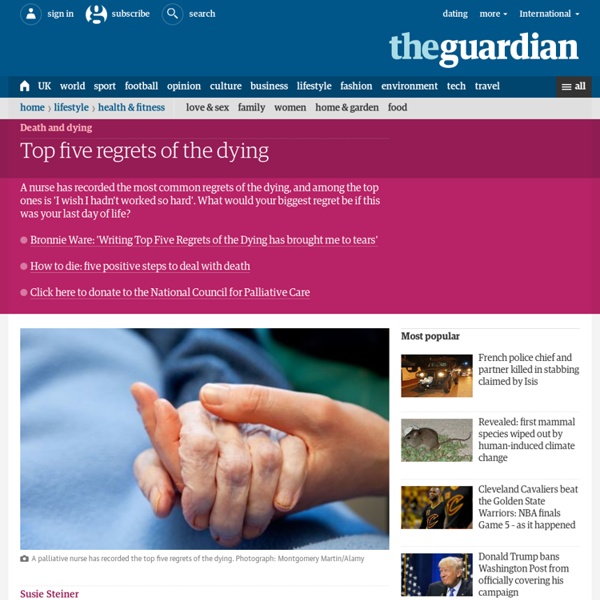Rana Florida: Your Start-Up Life: Why Serving Is the New Leading
Thursdays at the Huffington Post, Rana Florida, CEO of The Creative Class Group, will answer readers' questions about how they can optimize their lives. She will also feature conversations with successful entrepreneurs and thought leaders about how they manage their businesses, relationships, careers, and more. Send your questions about work, life, or relationships to rana@creativeclass.com. Patients from around the world travel to Rochester, Minnesota to be cared for by Mayo Clinic physicians. The Mayo Clinic is not only a great place for patients; it is also a terrific place to work. At the helm is President and CEO John Noseworthy, MD, the former medical director of the Mayo Clinic's Department of Development, as a professor in its Department of Neurology, and as the former editor-in-chief of Neurology (the journal of the American Academy of Neurology). Several readers have asked me how they can really hone their leadership style, so I went to the best.
Out of Balance Competition Launches
Humantific is delighted to announce our international competition collaboration with Magazine ARCH+ and Bauhaus Dessau Foundation. OUT OF BALANCE - CRITIQUE OF THE PRESENT Information Design after Otto Neurath Prize Money: 20,000 Euros Sponsors: Autodesk, Humantific, M:AI Museum für Architektur und Ingenieurkunst The Topic“1. Cities have always been the sites of migrants’ hopes for survival and the improvement of their situations, but they are also sites of organized defensiveness, inequality, and exclusion. In the 21st century, for the first time in the history of humankind, more people live in cities than in rural environments, with unpredictable and initially catastrophic consequences for both rural and urban areas. We live in a time that must be newly surveyed – in social terms and as the basis for a new societal consensus. “2. A situation arises in which political activity is not empirically verifiable and is dissolved in politically exploitable contradictions. Students in both areas.
Service Design Research
This list represents a summary of the past thirty years of service design literature. The citations were compiled from the Emergence conference at Carnegie Mellon University as well as the Designing for Services project in the UK, service design syllabi at CMU and individual research. I've excerpted the abstracts and introductions to the papers and cross-referenced examples and concepts so that it's easy to follow the development of ideas such as "service blueprinting" across multiple papers. Select any underlined term to filter the list, showing only papers that share that particular concept, example, author, journal or decade. If you'd like to help fill in the gaps by suggesting other canonical papers, e-mail the citations to service@howardesign.com . Examples: H&R Block, McDonalds, Walt Disney, Corner Shoeshine, Discount Brokerage Examples: Amusement Park, Fast Food Chain, Automobile Transportation, Airline Travel, Dry Cleaners, Tax Return Preparation, McDonalds, Corner Shoeshine
The Term “Patient” May Describe Me … But It Does Not Define Me
Editor’s Note: Recently, I had the privilege of being part of a very stimulating email thread on the Society of Participatory Medicine’s member-only list about the meaning of the word “patient” and what it implied for the field of Participatory Medicine. I invited several of the participants in this “conversation” to submit their ideas to the Journal to be published in the Commentary section. This excellent piece on whether we should consider changing the term “patient” is the first one I have received. I appreciate Mr. Scott’s perspective. I view the patient care arena a little like a battlefield, which the doctor and patient need to approach with their senses activated to give the encounter their best effort. Abstract What’s in a Name? Changing what we call things can be important–even liberating. A colleague of mine changed his surname recently, from Smith to something less common. Why? Redefining the Provider-Patient Relationship The surgeon was not very awake at all. Reference
Complexity Science
February 2008 | Back to Table of Contents Complexity Science Core Concepts and Applications for Medical Practice By Ashok M. Patel, M.D., Thoralf M. Sundt III, M.D., and Prathibha Varkey, M.D. Abstract Complexity science is a useful construct for physicians trying to cope with the escalating sophistication of health care and pressure to control costs. Providing high-quality, cost-efficient care to patients and their families is a complex endeavor. The partnership between patients and their physicians remains the centerpiece for ensuring that individuals get the most accurate information and best care possible.3 Increasingly, the physician’s role in the relationship is to be a coordinator of care: to organize and mobilize appropriate resources including physiologic data, medications, devices, and the services of nurses, therapists, and allied health professionals. The science of complexity may be a helpful construct for understanding some of these dynamics of medical practice. 1. 2. 3. 4.
The Design Society - a worldwide community
What's New Published: Addressing user needs and preferences is critically important in developing innovative and successful engineered products and systems. The task is inherently challenging due to the heterogeneity of user needs and the difficulty of modeling human behavior. Read More A Summer School on Eco-Design of Complex Systems will be held from 2-6 June 2014, organised by the ECOSD network. Read More The Singapore University of Technology and Design, established in collaboration with Massachusetts Institute of Technology (MIT), focuses on design-centric research and education through an innovative curriculum and research infrastructure. Read More Grenoble Institute of Technology recruits a lecturer permanent position in mechanical engineering that should be appointed for September 2014 in Grenoble. Read More Wednesday, 7 January 2015 - Friday, 9 January 2015, Bangalore, IN Read More Latest Publications MMEP spring workshop - Agenda
Acta Orthopaedica



